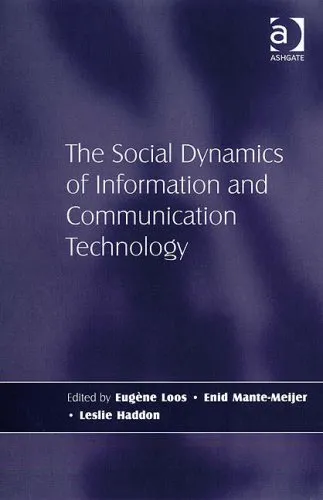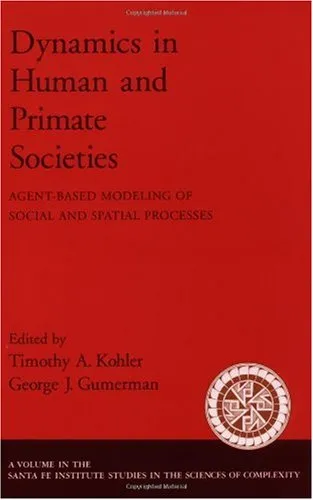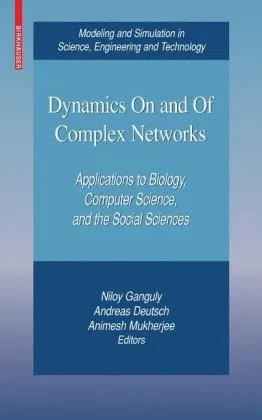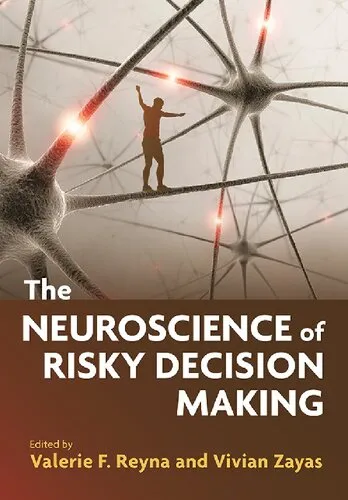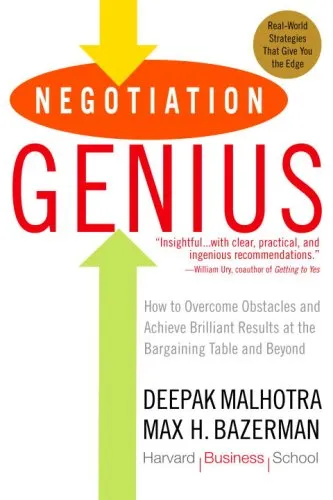The Social Dynamics of Information and Communication Technology
4.5
Reviews from our users

You Can Ask your questions from this book's AI after Login
Each download or ask from book AI costs 2 points. To earn more free points, please visit the Points Guide Page and complete some valuable actions.Related Refrences:
Introduction to 'The Social Dynamics of Information and Communication Technology'
Information and Communication Technology (ICT) is an ever-evolving domain that profoundly impacts individuals, societies, and cultures. In our book, 'The Social Dynamics of Information and Communication Technology', we delve into the intricate relationship between technology and society, examining the ways ICT shapes, and is shaped by, human behavior and the social structures it inhabits. Through a multidisciplinary lens, we present both a theoretical framework and real-world examples to unpack the complexities of how technology disrupts, transforms, and redefines key aspects of human life.
Exploring themes such as social inclusion, user dynamics, generational divides, and the nuances of ICT adoption, this book serves as an important resource for academics, professionals, and anyone intrigued by the societal implications of technology. It is not merely about technological innovation but rather about understanding the intricate dance between users and the systems they interact with—revealing insights into how technology facilitates, modifies, and sometimes challenges our social fabric. Whether you are concerned about the potential divide ICT might create or fascinated by its unifying power, this book provides an essential exploration.
Detailed Summary of the Book
The book is structured to provide a gradual yet profound understanding of ICT's role in societal evolution.
In the opening chapters, we lay the groundwork by addressing how ICT emerged as a central element in modern society. We explore historical case studies that show how rapid advancements in communication tools—from landlines to smartphones—have always brought about significant societal shifts. These shifts range from more efficient workplace dynamics to the democratization of information exchange globally, but they also give rise to ethical, social, and economic concerns.
Subsequent sections dive deeper into the user experience, discussing how ICT adoption patterns vary across demographics such as age, culture, and socioeconomic backgrounds. By introducing concepts like the Digital Divide, we highlight the disparities in ICT accessibility and literacy. Furthermore, we emphasize how policy decisions, public situations, and individual agency contribute to ongoing changes in ICT usage.
As the book progresses, we tackle pressing issues including privacy concerns, the role of ICT in political mobilization, and its impact on family life, education, and interpersonal relationships. By drawing on data from qualitative and quantitative studies, the book unpacks the tensions surrounding ICT as both a tool for liberation and a source of new challenges.
Key Takeaways
- ICT does not merely evolve independently; its development and adoption are deeply embedded in social frameworks.
- Understanding technology requires understanding the human aspect, including how organization and individual behavior adapt over time.
- The concept of a 'Digital Divide' is not static. It evolves and is influenced by various cultural, economic, and policy-driven factors.
- Ethical considerations, such as privacy and security, must go hand-in-hand with ICT innovation.
- Generational perceptions of ICT offer unique insights into the long-term trajectory of technology's social impact.
Famous Quotes from the Book
"ICT is not just a tool of convenience; it is an agent of change, altering how we connect, work, and live."
"The adoption of technology cannot be divorced from the social and cultural contexts that guide its use."
"The promise of ICT lies in its duality: its power to either bridge societal gaps or widen them."
Why This Book Matters
Our book provides critical insights in an age where ICT is ubiquitous and growing ever more interconnected with our daily lives.
Understanding the social dynamics of technology shapes the way governments, organizations, and individuals view advancements. The book highlights that progress is not merely about more efficient systems or impressive tools but also about ethical and inclusive usage. Discussions within these pages serve as a foundation not just for academics but also for business leaders, policymakers, and users striving to embrace technological developments thoughtfully. We firmly believe that technology must serve humanity and not vice versa—it is this ethos that drives the need to understand its social dynamics.
In an increasingly digital world, the insights gained from this book open up a dialogue on accountability, systemic inclusivity, and the responsible use of technology.
Free Direct Download
You Can Download this book after Login
Accessing books through legal platforms and public libraries not only supports the rights of authors and publishers but also contributes to the sustainability of reading culture. Before downloading, please take a moment to consider these options.
Find this book on other platforms:
WorldCat helps you find books in libraries worldwide.
See ratings, reviews, and discussions on Goodreads.
Find and buy rare or used books on AbeBooks.
1343
بازدید4.5
امتیاز0
نظر98%
رضایتReviews:
4.5
Based on 0 users review
Questions & Answers
Ask questions about this book or help others by answering
No questions yet. Be the first to ask!
